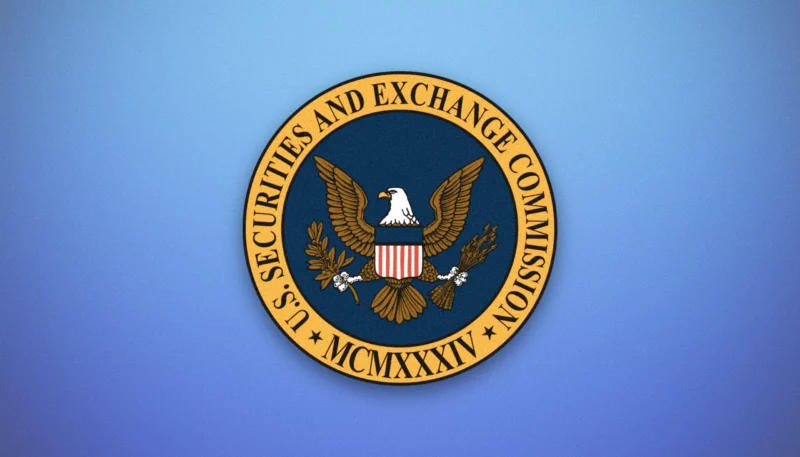In my previous post, I described the events leading up to the Chapter 11 bankruptcy and supervised asset sale of Neogenix Oncology. To recap, Neogenix’s use of unregistered “finders” in some of its earlier rounds of financing called into question the company’s compliance with federal and state securities laws. After the SEC commenced an investigation, Neogenix’s accountants concluded that potential investor rescission rights could give rise to large contingent liabilities on the company’s balance sheet. This uncertainty led to Neogenix being unable to raise further funds, necessitating the company’s bankruptcy filing. In this post, I’ll explore how exactly Neogenix violated securities laws and the lessons this case study provides to startups and other growth-stage companies.
Under Section 15 of the Securities Exchange Act of 1934, it is unlawful for “any broker… to effect any transactions in, or to induce or attempt to induce the purchase or sale of, any security… unless such broker… is registered [with the SEC].” The term “broker” is defined in the Exchange Act as “any person engaged in the business of effecting transactions in securities for the account of others.” Note that a person’s activities determine whether he is a broker and not what he calls himself or how the company employing him refers to him – whether it be a finder, consultant, facilitator, or the like. The SEC has taken a broad interpretation of this provision, which requires anyone who engages in capital-raising activities for compensation to be a registered broker-dealer.1 While the SEC has provided for a “finder exemption” for those who merely introduce potential investors to a company seeking capital, this exemption is, in practice, very narrow. The SEC has taken the position that if the finder is entitled to any fees that vary depending on whether a transaction is consummated or varies based on the amount of money raised, the finder is not exempt from registering as a broker. Whether this fee is labeled a “commission,” a “success fee,” or a “consulting fee” is irrelevant. Therefore, just about all arrangements in which someone is paid to do anything more than merely introducing investors to a company for a flat non-contingent fee are illegal unless that person is registered under the Exchange Act or is a registered representative of a broker-dealer.2
In addition to the fact that engaging in capital-raising activities for compensation without being registered as or associated with a registered broker-dealer is illegal for the unregistered broker, it is also a very risky arrangement for the company to raise capital to pay an unregistered broker. There are a couple of reasons for this. First, Section 29 of the Exchange Act provides that “[e]very contract made in violation of any provision of [the Exchange Act], and every contract…, the performance of which involves the violation of, or the continuance of any relationship or practice in violation of, any provision of this title or any rule or regulation thereunder, shall be void…” If the sale of securities was obtained through the introduction of an unregistered broker, then the sale itself could be rescinded by the purchaser under Section 29. A successful rescission suit would allow the investor to get his money back from the company and/or, potentially, the company’s officers and directors. In addition, most state securities “blue sky” laws also have a similar requirement that brokers be registered and a similar provision providing for a rescission right for investors. Finally, the use of an unregistered broker could result in the loss of the company’s private placement exemption, which would mean that all securities sold in the capital raise were sold without a proper exemption from registration under federal and state securities laws.
Neogenix, in its various rounds of financing, did indeed pay commissions to unlicensed brokers. As such, its investors had the potential right to rescind their investments (in an amount of over $30 million). Uncertainty over the accounting treatment of this potential liability caused the company to be unable to file its quarterly financial reports, bringing further fundraising to a halt. As a growth stage company, Neogenix was still reliant on further infusions of capital, sending the company into bankruptcy.
Some time ago, a Nashville-based investment banker told me that, in his view, more capital raises occur through unregistered so-called “finders” than through registered broker-dealers (for the record, his firm was registered). Because the use of unregistered brokers is so rampant, many people are under the mistaken impression that the “finders exemption” allows for the payment of transaction-based compensation for capital-raising activities. But it doesn’t, and the SEC and state securities administrators have taken action against both the unregistered brokers and the companies that employ them.
Footnotes
1 Registration as a broker-dealer allows someone to act as both a broker and a dealer (which is a separate type of activity in the Exchange Act). There is no separate registration for brokers and dealers; there is simply one license that covers both activities.
2 Another myth that is often thrown around is that if someone has taken a Series 7 exam, they can collect a commission for capital raising activities. The Series 7 exam is a test administered by FINRA that allows someone to be a licensed registered representative of a broker-dealer. However, simply taking the exam is not enough. The finder must actually also be associated with a registered broker-dealer, the operation of which requires considerable capital, overhead, expenses, and compliance responsibilities. Any commissions or other fees must be paid to the broker-dealer (usually a corporation or other entity), not the individual who acted as a finder.
This article is for general information only. The information presented should not be construed to be formal legal advice nor the formation of a lawyer/client relationship.




